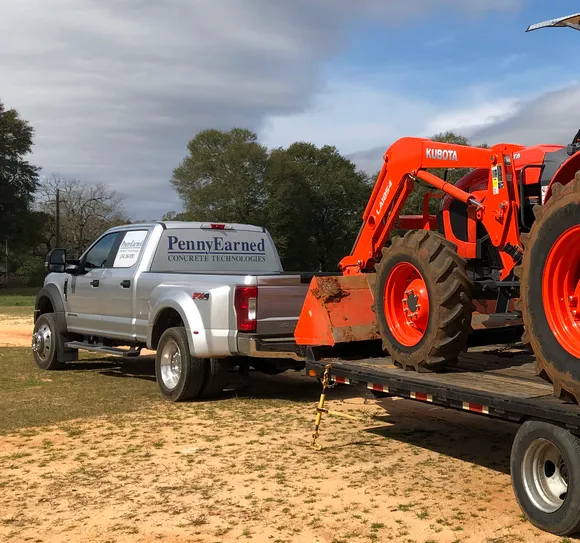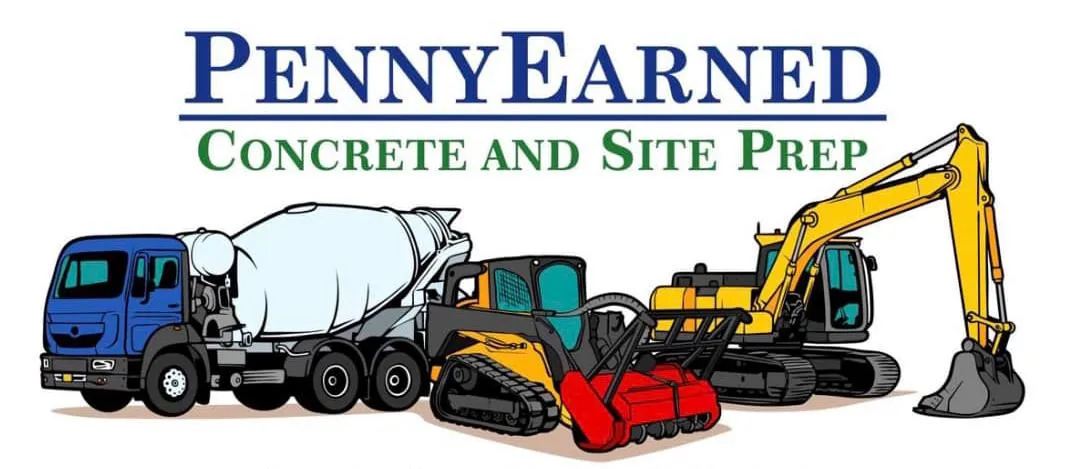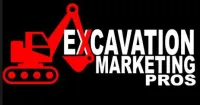
Best options for Pond Construction near Montgomery, AL | Based on Real Soil Conditions
The Best Pond Construction Options for Your Montgomery Property (Based on Real Alabama Soil)
1. Why You’re Here: The Real Struggle of Building a Pond in Alabama
Let’s be honest—building a pond sounds simple. Dig a hole, fill it with water, toss in some fish or maybe a fountain, and call it a day. But if you’re here, reading this, you’ve probably already figured out that it’s not that easy.
Maybe your backyard has turned into a swampy mess after every rain. Maybe the last “pond” you built never held water, no matter how much dirt you packed down. Or maybe you’re just tired of guessing and want to get it done the right way the first time.
You’re not alone. A lot of homeowners around Montgomery, Autauga, and Elmore Counties come to us after trying to build a pond themselves, or hiring someone who didn’t understand Alabama dirt.
If that’s you, we get it. You’re frustrated. You’re cautious. And maybe you’re a little worried this project will become another money pit. You just want a pond that works, looks good, and doesn’t drive you crazy. We’re going to help with that.
2. Understanding Alabama Soil: Why It’s Not All Created Equal
In central Alabama, you could drive 15 minutes and see five different types of soil. One yard has thick, sticky clay. The next has soft sandy loam. Some properties even have patches of hardpan or red rock just a foot under the grass.
And guess what? Every one of those soils behaves differently when you try to build a pond on it.
Clay holds water well—sometimes too well—and can create drainage problems if not shaped right.
Sandy soil drains fast, which is great for flower beds but terrible for ponds.
Rocky or compacted soils are unpredictable, and you’ll need equipment just to break ground.
If your contractor doesn’t understand the local soil—or worse, doesn’t bother checking it—you could end up with leaks, slumping banks, or a pond that dries out in August and floods in February.
3. How Soil Type Affects Pond Construction (And What Can Go Wrong)
Your pond is only as strong as what it sits on. If the soil can’t support it, the whole thing fails—sometimes fast, sometimes slowly over a few painful years.
Here are the most common issues we see:
Leaks from porous soil
Collapsed pond walls from loose fill
Standing water from poor drainage planning
Algae blooms due to bad runoff control
Erosion from heavy rains or cattle access
Every one of these problems ties back to soil—and most of them can be avoided if the job is customized from the start. That’s why we always start with a soil evaluation before doing anything else.
4. Popular Pond Types That Work in Montgomery County and Beyond
Not all ponds are created equal—and not all of them will work on your land. Here’s a quick guide to common pond types and how they match up with real Alabama soil.
Farm Ponds
Great for larger rural properties. They’re built for utility—watering livestock, fishing, irrigation. These usually need heavy equipment and are best on properties with natural drainage dips.
Koi Ponds
These are all about aesthetics. Think small, decorative, usually near the house. Koi ponds require extra filtration and often a rubber or concrete liner—especially in sandy or mixed soils.
Retention Ponds
Used in developments to manage stormwater. If you’re in a lower-lying area or dealing with water runoff from hills, this could be a dual-purpose solution.
Decorative Backyard Ponds
These are flexible and can be scaled to any size. Whether it’s a bubbling rock feature or a full-blown water garden, these can be custom-built based on your soil and how much maintenance you want.
5. Pond Liners vs. Natural Bottoms: What Works Best in Our Soil
There’s a lot of talk online about pond liners vs. “natural” clay-bottom ponds. But here in Alabama, your soil often makes that choice for you.
If your soil has good clay content, you might not need a liner at all. You can compact it and shape it for water retention.
If your soil is sandy, silty, or mixed, liners are a must—either rubber or concrete.
Rubber liners are more forgiving and cheaper, but they don’t last forever. Concrete liners are more durable but cost more up front. Both have their place; it just depends on what your land gives you.
6. DIY or Professional Pond Building: What’s Worth It (And What’s Not)
Look, we love a good DIY project. But ponds? They’re one of those things that can get real expensive if they go wrong.
We’ve had folks call us after spending thousands renting equipment, buying liner material, and digging for days—only to watch their “pond” turn into a muddy puddle.
If you’re thinking about going the DIY route, here’s our two cents:
DIY can work for very small, shallow decorative ponds.
Anything over 2,000 gallons or deeper than 3 feet? Hire a pro.
Why? Because once you factor in the equipment, soil testing, grading, compaction, and drainage—this stops being a weekend project fast.
7. The Best Time of Year to Build a Pond in Alabama
The soil here in Montgomery County has moods—especially when it rains. Timing matters more than people think.
Fall and early winter are usually the sweet spot. Cooler temps, firmer soil, less rain.
Spring can be good, but watch out for heavy rains.
Summer? You’ll be battling heat, dust, and sometimes baked clay.
We usually avoid deep excavation during the wettest months (January through March). Not only does the work slow down, but the soil can shift in unpredictable ways when it's saturated.
8. Permits, Problems, and Potholes: What to Watch Out for in Montgomery County
Most ponds in Alabama don’t need heavy permitting—but don’t assume that means you can dig wherever you want.
If you’re near a waterway or wetland, there could be state or federal rules.
If the pond affects drainage across property lines, your neighbors might have legal grounds to raise a stink.
If you’re in a subdivision, your HOA might have rules.
We help our clients navigate this stuff because skipping it can mean big headaches down the road—fines, flooding, or having to tear out the whole thing.
9. Why Customization Matters for a Long-Lasting Pond
This is where we at PennyEarned Concrete and Site Prep spend most of our time—not just building ponds, but designing them around what you need and what your land can handle.
No two properties are the same. Some need French drains to divert water. Others need compacted clay brought in. Some homeowners want zero maintenance, while others want a stocked fishing pond.
We’re not a one-size-fits-all crew. We ask questions, we look at your soil, and we figure out what’s going to give you the best result—without wasting time or money on things you don’t need.
10. How PennyEarned Concrete and Site Prep Helps You Get It Right
We’re based right here in Montgomery County, and we serve the counties our neighbors live in—Autauga, Elmore, Lowndes, Bullock, Macon, Tallapoosa, Chilton, Dallas, and Pike.
We’re not the biggest team in the state, but we take the time to get things right. When you call us, you’re not getting a canned quote or a standard plan—you’re getting a real person who wants to understand your goals.
We’ve worked with Alabama’s dirt, rocks, and rain for years. We know what fails. We know what holds. And we’ll walk you through every option before a shovel hits the ground.
11. Final Thoughts: What a Good Pond Should Feel Like (Peaceful, Not Stressful)
At the end of the day, your pond should bring you peace, not headaches. It should hold water without a fight. It should work with the land, not against it. And it should feel like it belongs there—not like it’s trying to escape every time it rains.
We believe in building ponds that feel right for your property, your soil, and your life. If you’re ready to stop guessing and start getting it done right, we’re here to help.
All rights reserved | Privacy policy | Client Support Area | Terms & Conditions | Privacy policy




